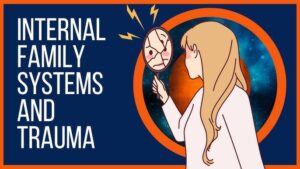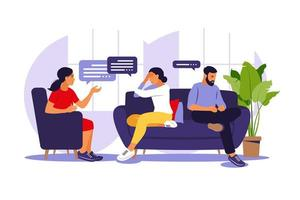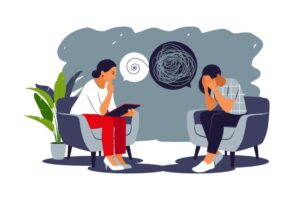Attention Deficit Hyperactivity Disorder, also known as ADHD, is a brain disorder that leads to attention difficulties, hyperactivity, and impulsive behavior. Although the usual onset of this condition is during childhood, it can persist well into adulthood and cause problems in the individual’s lifestyle. With the growing perception that the current generation is facing a shortening of attention spans, ADHD has become quite a buzzword in general. However,
ADHD is much more severe and chronic than scattered occasions of inattention and impulsivity.
ADHD can be crippling in that it affects various aspects of life including personal, professional, and social. This condition is extremely common in India with reports of over 10 million cases per year. Considering this, it is crucial to take a deep dive into this subject to understand what ADHD is and the scene of ADHD treatment for adults in India. The Diagnostic and Statistical Manual of Mental Disorders groups ADHD under the category of Neurodevelopmental Disorders. Neurodevelopmental disorders start during childhood and are caused by brain malfunctions and injuries. Such disorders can negatively alter normal childhood development.
What Does Having ADHD Look Like?
The following are the prominent symptoms of ADHD as outlined by professionals:
- A feeling of being on edge
- Rapid mood changes from one to another
- Difficulty sitting still
- Shortened attention span
- Often forgetting things
- Persistent talkativeness and speaking out of turn
- Repeating certain actions or words
- Losing temper easily
- Feelings such as anxiety, depression, boredom, restlessness, and irritability are experienced
- Changing priorities quickly
- Not being able to complete tasks or see through plans
- Easily distracted by irrelevant events
- Lacking attention to detail
- ADHD can impair emotional regulation, decision making, and increase forgetfulness. This can have a negative impact on the person’s relationships with closed ones.
- It can also impede professional growth due to lack of organizational skills and effective time management abilities.
The above symptoms are categorized separately into inattention and hyperactivity and impulsiveness criteria. Furthermore, since ADHD is a neurodevelopmental disorder, these symptoms begin in childhood but can continue well into adulthood if not addressed. However, as the transition to adulthood occurs, it can be difficult to recognise the presence of ADHD as the symptoms become more subtle.
It is worth mentioning that many attributes associated with inattention and hyperactivity and impulsivity can be experienced by individuals in their lives but ADHD patients’ experience is far more severe and enduring and can significantly impact day-to-day functioning and lifespan development.
What Causes ADHD?
The development of ADHD can be attributed to multiple influences ranging across genetic, neurological, brain structure and function, and environmental. ADHD runs in families and is therefore genetic. No single gene has been identified as the reason behind it but offspring and siblings of patients with ADHD have a significantly higher chance of having the disease as well. Brain injury or trauma during childhood can become a causal factor too. Brain structural and functional abnormalities as well neurotransmitter imbalances are some other reasons. Exposure to toxins during prenatal development or after birth and adverse childhood experiences can contribute to it too.
People with ADHD are also at risk of developing personality disorders, bipolar disorder, obsessive-compulsive disorder, and substance abuse disorder.
What Does ADHD Treatment For Adults In India Look Like?
In case the earlier discussed symptoms are identified, professional help should be sought to diagnose and further treat ADHD. After a couple of preliminary tests and questions, the mental health professional will chart a plan that is tailor-made according to the specific situation of the individual. Medications or therapy or both may be used for treatment.
Medications are proven to be effective in reducing inattention, hyperactivity and impulsivity, and manage cognitive deteriorations. Stimulants, anti stimulants and antidepressants are the common choice of drugs used for tackling ADHD.
Therapeutic approaches primarily involve Cognitive Behavioural Therapy (CBT), behavior therapy, and support groups. CBT, short for Cognitive behavioral therapy involves a systematic process of reframing existing unhelpful emotions, thoughts and behaviors. The underlying assumption of CBT is that psychological issues arise due to dysfunctional thoughts and behaviors which can be changed. Behavioral activation, exposure and cognitive restructuring are some methods of CBT in which clients are encouraged to include pleasurable and fulfilling activities in their routine to increase motivation and improve mood, clients are exposed to anxiety-triggering events under guidance, and negative thoughts and beliefs are challenged and restructured into more positive ones.
Next is Behaviour Therapy. It is quite similar to CBT but the focus here is more on the behavioral aspect. It is a therapeutic approach which focuses on modifying maladaptive behaviors into more adaptive ones. The therapist, together with the client, uses techniques such as modeling, shaping, and reinforcement to change undesirable behaviors. The problematic behaviors are identified along with their antecedents and triggers and a specific plan for change is developed in this collaborative process.
Support Groups involve weekly or monthly meetups with a group of people who are also going through the same condition that an individual is involving open and vulnerable conversations around the topic. This is an excellent way of feeling less lonely in your hardships and finding ways to better cope with them.
Initial stages of a disorder usually involve treatment through psychotherapy. Medications, since they involve side effects as well, are used if management through psychotherapy is not proving to be effective.
These techniques can surely support in managing the symptoms of ADHD but cannot completely cure it.
Conclusion
ADHD is a widespread condition in India punishing millions of people. It is a chronic condition that can last for years or even be lifelong. Receiving support during earlier stages can lead up to better outcomes. Maintaining a good lifestyle is also beneficial. Eating nutritious food, sleeping well, exercising regularly, having good social connections, and learning effective stress management techniques are some examples.
However, these strategies are not a replacement for a doctor’s guidance and support. Treatment provided under such expertise can enhance the day-to-day functioning of the individual and help them lead a better life. ADHD treatment for adults in India is available as well as accessible.
So do not let your fears hold you back and reach out to a professional today.
Why CoachForMind?
- Experienced Psychologists: We are a team of licensed RCI-registered clinical psychologists. Our team has the best practices involved in ADHD Treatment For Adults In India
- Personalized Approach: We are dedicated to treating our clients with the best suited way, carefully curated as per the needs of the client adhering to one-on-one, client-centered therapy.
- Scientific Techniques: Our treatment plans and therapeutic methods are based on highly researched, scientific findings such as CBT and behavioral therapies. These therapies are used in rewiring the brain into shifting from inattentive and hyperactive behaviors into healthy ways of coping from the issue and developing mindful habits.
- Quality service: We at CoachForMind ensure quality services in our treatment regime and therapeutic approaches. Our clients hold the most value to us, so we ground our techniques in empathy while maintaining professionalism.
For more information, please visit our website www.coachformind.com or contact us directly at www.coachformind@gmail.com




